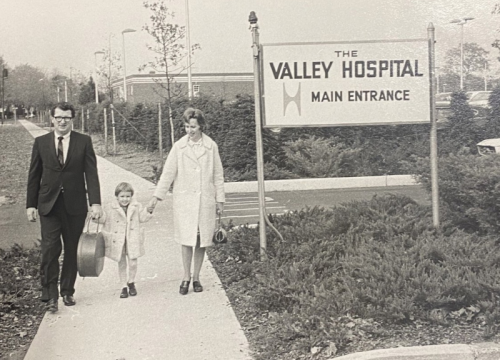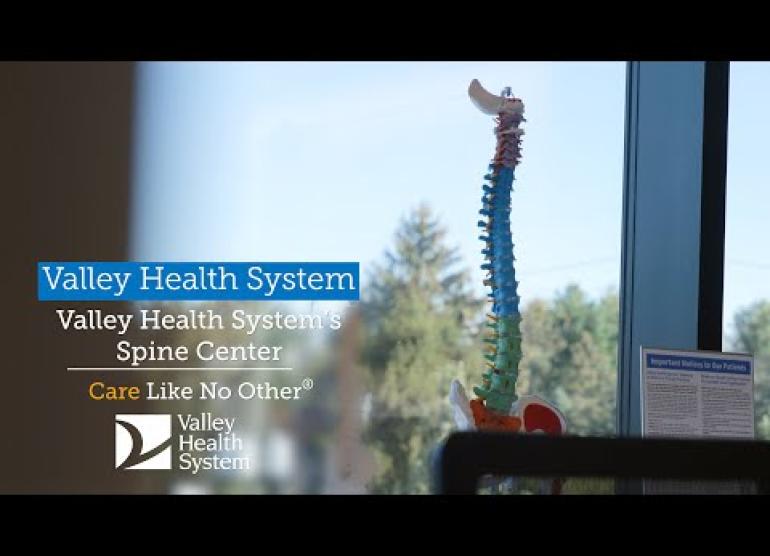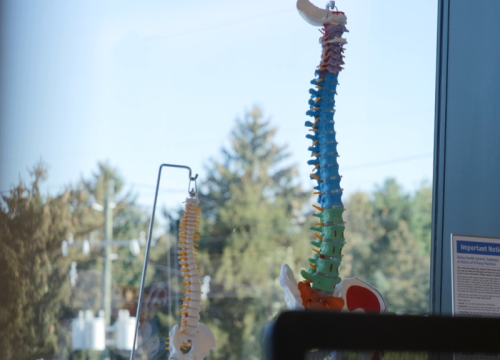If you have been diagnosed with bladder cancer, Valley's fellowship-trained urologic oncology specialists will assist you in selecting the best options for your condition.
Bladder cancer affects approximately 80,000 new patients per year. It commonly affects men over the age of 55 and is less common in women.
Types of Bladder Cancer
Bladder cancer is classified based on the type of cell where it begins:
Urothelial Carcinoma (Transitional Cell Carcinoma)
The most common form of bladder cancer, starting in the cells that line the inside of the bladder.
Squamous Cell Carcinoma
A less common type of bladder cancer, occurring more commonly in certain parts of the world due to infections with bladder parasites.
Adenocarcinomais
A rare type of bladder cancer that starts in the glandular cells that line organs.
Sometimes bladder cancer is classified as more than one type.
Bladder Cancer Symptoms
Bladder cancer is often caught early and discovered due to the symptoms you may experience, such as:
- Blood in the urine (visible or microscopic on urinalysis)
- Frequent urination
- Urgent need to urinate
How Bladder Cancer is Diagnosed at Valley
If you are experiencing symptoms, your doctor may refer you to a urologist or urologic oncologist.
During your initial visit, our specialists will take your medical history and discuss your symptoms.
Your doctor may order additional testing to help diagnose bladder cancer, such as:
- Urine lab tests: A sample of urine will be tested for blood cells and cancer cells.
- Urine biomarkers: Your urine will be checked for certain proteins or genetic changes that can help detect bladder cancer or monitor for recurrence.
- Cystoscopy: A long, thin scope with a camera is inserted into the bladder so your doctor can look for any abnormalities. A biopsy of bladder tissue may be taken to confirm a diagnosis.
- Imaging tests: A computed tomography (CT) scan may also be ordered to further examine the bladder and the surrounding organs and lymph nodes.
Blue Light Cystoscopy with Cysview®
Valley offers Blue Light Cystoscopy with Cysview®, an advanced technique that uses a special imaging dye and blue light during a cystoscopy to enhance the detection of bladder cancer.
About an hour before the exam, a medication called Cysview is placed into your bladder. The medication is then absorbed by cancer cells, making them glow bright pink when exposed to blue light. During the cystoscopy, your doctor switches between white and blue light to examine the bladder, and the glowing cancer cells become easier to spot and remove.
Bladder Cancer Treatment Options at Valley
Our Urologic Oncology team uses a team-based approach to closely review your case and recommend a personalized treatment plan. During a single, two-hour visit, you will meet with our team of specialists to go over your treatment options and answer any questions.
Your treatment options will depend on the stage or aggressiveness of the cancer. Sometimes more than one treatment type is used in combination. Our bladder cancer experts will help you decide what treatment options are right for you.
Bladder cancer treatment may include:
Surgery
Surgical treatments are common for bladder cancer. There are different surgical options, and your doctors will discuss with you which would work better for your cancer:
- Transurethral Resection of Bladder Tumor (TURBT): For selected less aggressive or early stage bladder cancers, a minimally invasive superficial resection of the tumor may be performed from within the bladder. Sometimes this procedure is followed by intravesical therapy, which involves filling the bladder with medicines to help destroy cancer cells directly or recruit immune cells to attack the cancer.
- Robotic bladder sparing surgery (partial cystectomy): This procedure may be effective in removing cancerous cells in select cases.
- Robotic cystectomy: Sometimes your doctor may need to remove the entire bladder. When that happens, it may be possible to create a new bladder during this surgery called a neobladder.
In other cases, you may need an ostomy to help urine leave the body. If you do need an ostomy, we will help you heal and provide educational and emotional support through our Wound, Ostomy & Continence Center.
Chemotherapy
Chemotherapy may be given before (neoadjuvant) or after (adjuvant) surgery. It may also be used together with radiation therapy for bladder preservation. Valley has skilled on-site pharmacists and chemo-certified nurses that are closely involved in your chemotherapy treatment.
Radiation Therapy
Radiation therapy uses beams of energy to destroy cancerous cells. Our highly skilled radiation oncologists will determine whether you may benefit from radiation treatment.
Valley radiation therapy uses the latest technology, such as BrainLab ExacTrac Dynamic, to give the most precise treatment possible in the shortest amount of time.
Intravesical Therapy
Intravesical therapy is a bladder cancer treatment that delivers medicine directly into the bladder through a catheter. It’s often used to treat non-muscle invasive, or early-stage, bladder cancer.
Valley treats bladder cancer patients with two main types of intravesical therapy:
- Intravesical chemotherapy: Medication inserted into the bladder that destroys cancer cells
- Intravesical immunotherapy: Medication inserted into the bladder that helps the body’s own immune system recognize and attack cancer cells. Valley offers the following intravesical immunotherapy treatment options:
- Bacillus Calmette-Guerin (BCG): BCG uses a weakened form of bacteria that triggers an immune response to help your body attack and destroy cancer cells in the bladder lining.
- Adstiladrin®: Adstiladrin is a gene-based therapy that helps your body make a natural protein to fight cancer inside the bladder.
Why Choose Valley for Bladder Cancer?
- Individualized care using the latest technology: We use the latest technology and treatment options to provide bladder cancer care that’s personalized to your needs and goals. Our experienced physicians will work closely with you to create a treatment plan that fits your lifestyle and family preferences.
- Team approach to bladder cancer treatment: At your first visit, you will meet with our entire multidisciplinary urologic oncology team to discuss your specific cancer. This integrated approach gives you and your family access to a group of specialists who can answer your questions and go over your treatment options. Our team will help you choose the treatment plan that’s right for you.
- Minimizing side effects: We invest in advanced technology to minimize treatment side effects for our patients. These advancements help increase the accuracy of treatment, shorten treatment time in some instances, and minimize damage to healthy tissue.
- Ostomy care: We understand that having an ostomy can be life-changing; that’s why our ostomy specialists work closely with you to make this transition as easy as possible.
- Nurse navigators to help guide you: Valley’s urologic oncology nurse navigators will be with you each step of the way during your treatment. They are there to help you coordinate your visits with specialists and connect you as needed to the right people to answer your questions—whether they are clinical or financial.
To learn whether Valley’s bladder cancer specialists and treatment options are the right fit for your diagnosis, call 201-634-5567 to schedule an appointment.



























